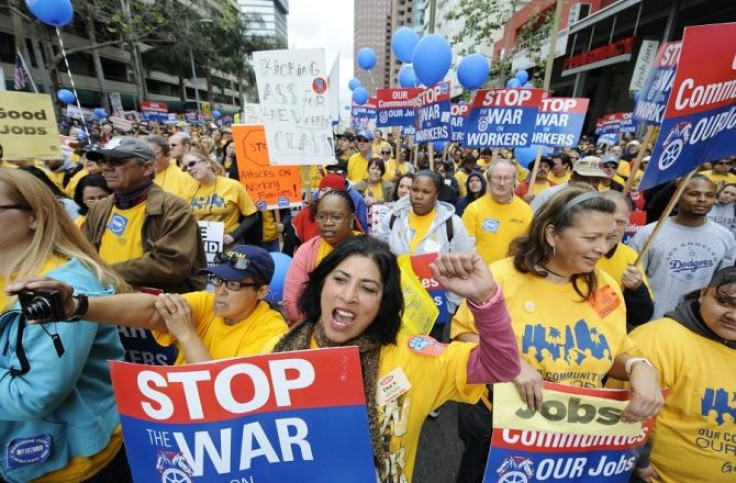A Win for Unions as Labor Board Speeds up Election Process

The National Labor Relations Board announced on Wednesday that it has adopted parts of its contentious union election rule, giving unions who complain of a long election process a victory against private-sector workplaces.
The new rule would limit pre-election legal challenges and give more power to NLRB hearing officials to speed up the process by limiting testimony at regional hearings and combining appeals regional director decisions into one post-election review request, according to the board. The rule will be in effect on April 30.
"This rule is about giving all employees who have petitioned for an election the right to vote in a timely manner and without the impediment of needless litigation," said NLRB Chairman Mark Pearce, a Democratic appointee of President Barack Obama.
The board’s two Democrats approved the ruling; however the only Republican rejected the decision. Business groups strongly oppose the new election rule, and earlier this year House Republicans had passed legislation in a bid to cancel the regulation.
The U.S. Chamber of Commerce, the largest business lobbying group, denounced the decision and filed a lawsuit in Washington in attempt to block the rule. The Chamber says that shortening election periods would “ambush” employers and violate their free-speech rights.
“This rule has no conceivable purpose but to make it easier for unions to win elections. While couched in technicalities, the purpose of this regulation is to cut-off free speech rights to educate employees about the effects of unionization. The elimination of these rights has long been on the wish list of organized labor and the Board has dutifully granted that wish today.” Randy Johnson, the U.S. Chamber of Commerce’s senior vice president of labor, immigration and employee benefits, said in a statement.
Labor unions applauded the new rule; however labor officials downplayed the election rule’s potential impact and said more should be done to protect workers’ rights.
"This NLRB rule is a modest but important first step toward ensuring a level playing field for workers in the union election process. Preventing unnecessary delays and frivolous litigation means less time for employers to intimidate, harass, and in some cases fire pro-union employees. Every worker has the right to decide whether he or she wants a union, free of interference,” said Joe Hansen, International President of the United Food and Commercial Workers Union.
The adjustments to the election case procedures in the new rule were taken from a more comprehensive proposal submitted by the Board in June. The board said that board members are still considering other parts of the proposal that have generated the most debate while it passing the parts that was considered relatively “less controversial.”
The board also stated that the goal of their decision was because in recent years, only about a tenth of NLRB election cases completed the hearing process and elections on average were stalled 101 days after the election petition had been filed with the regional office.



























